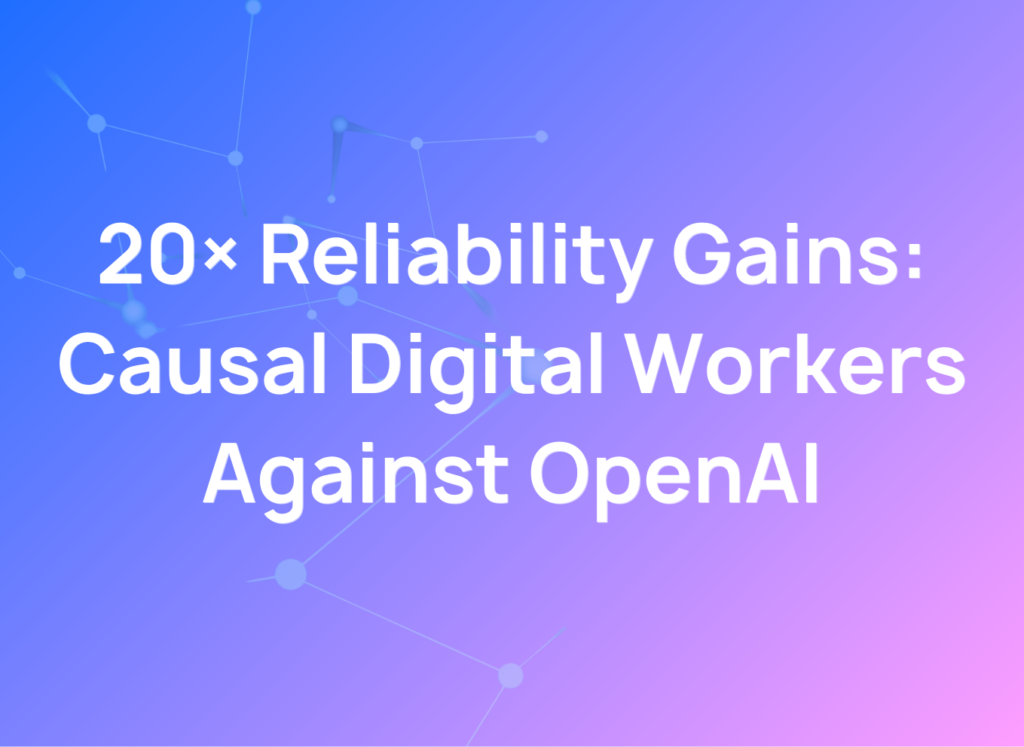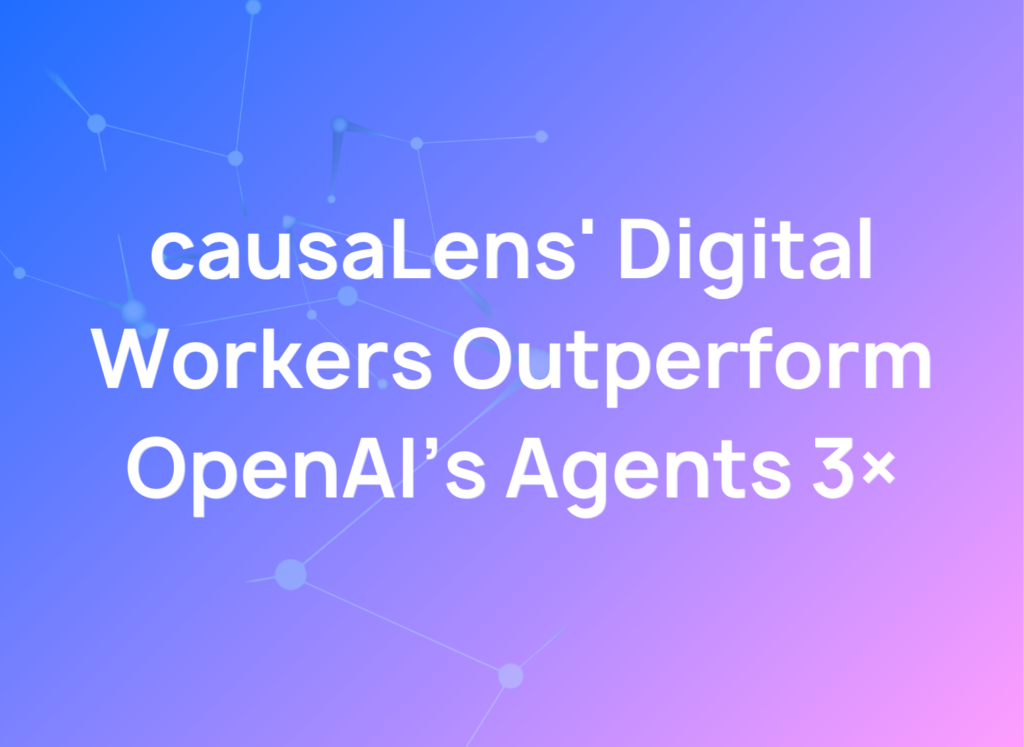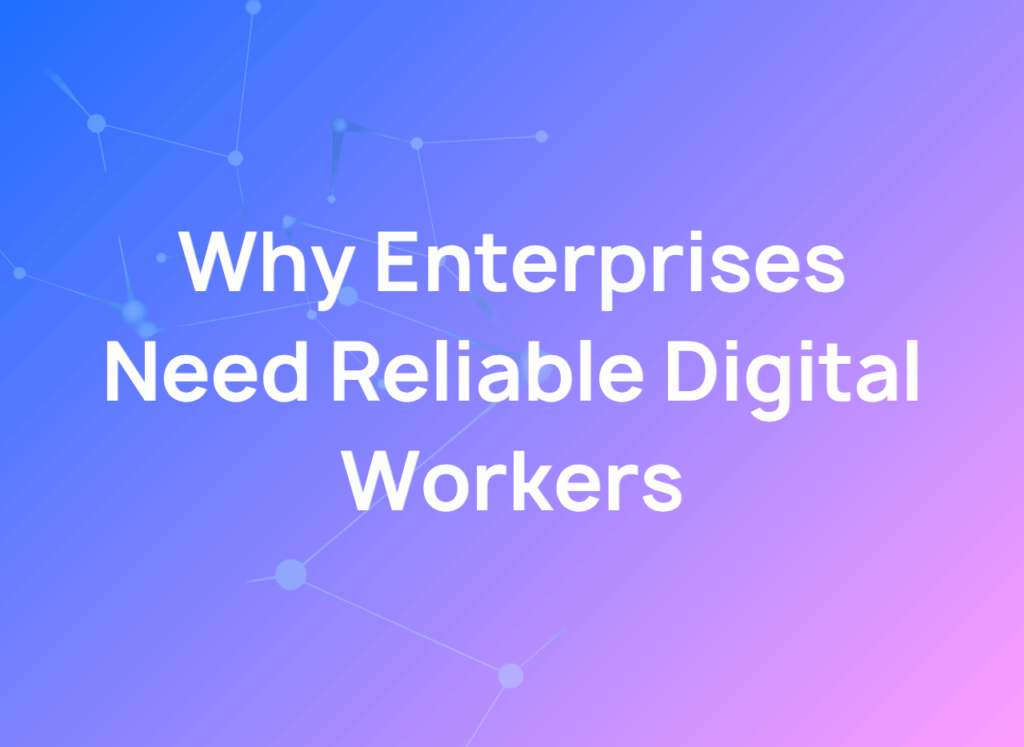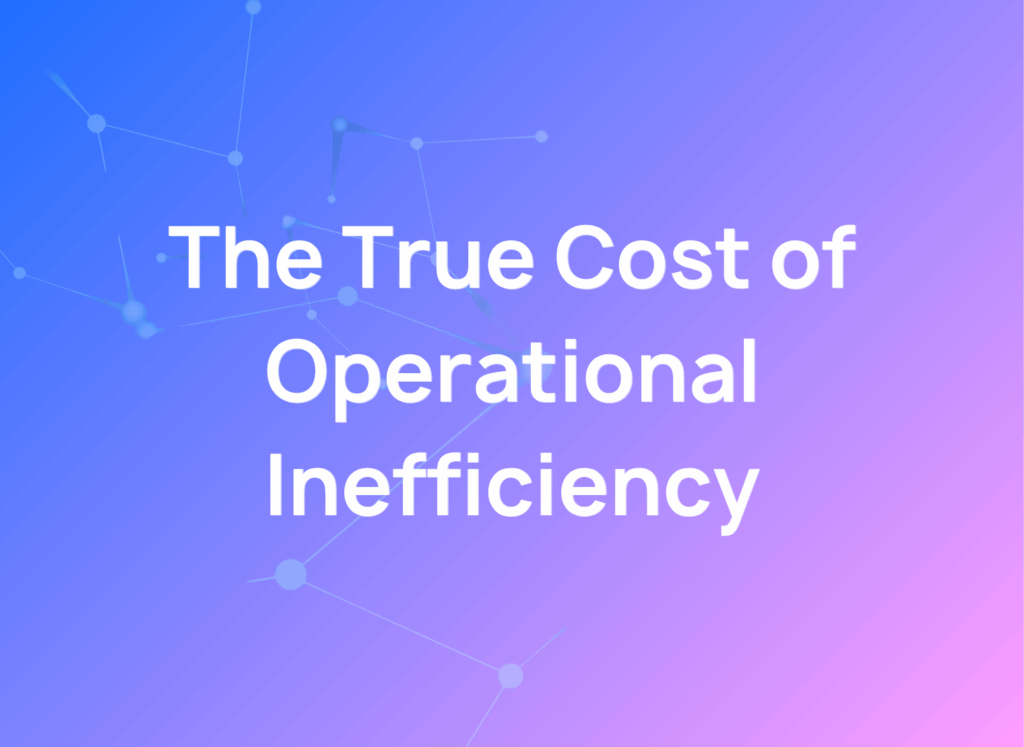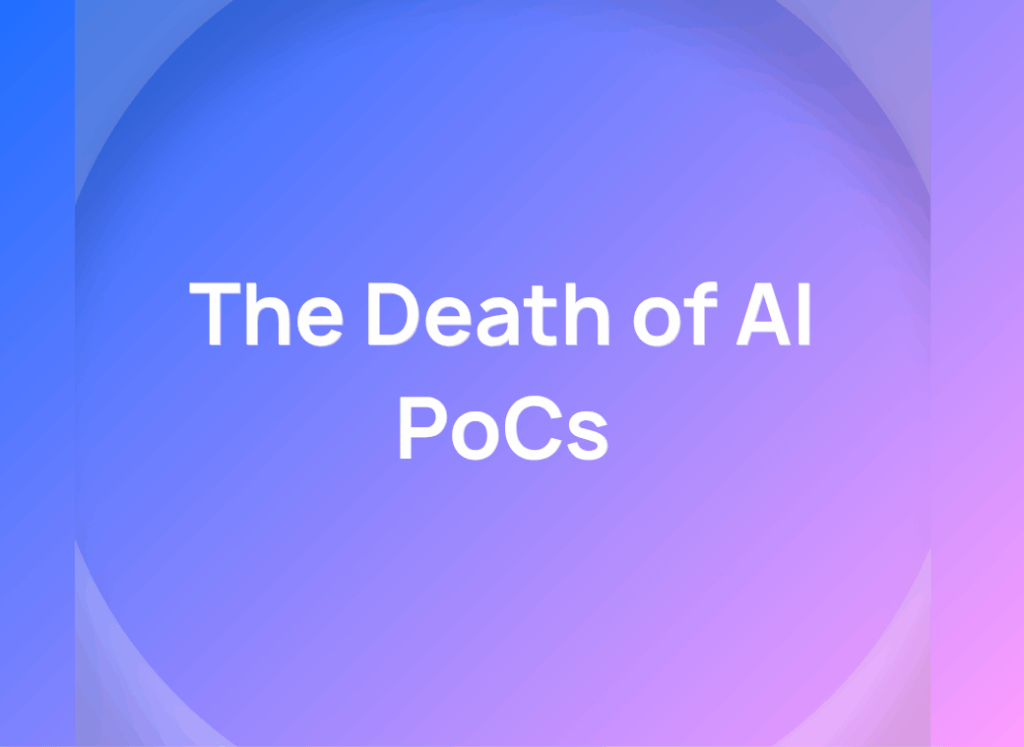How AI for Supply Chain Transforms Operations Management
How AI for Supply Chain Transforms Operations Management
Supply chain disruptions have become the new normal. From pandemic-induced shortages to geopolitical tensions affecting global trade routes, operational executives face unprecedented challenges that traditional management approaches can't solve. The future belongs to organizations that harness AI for supply chain optimization—turning reactive crisis management into proactive strategic advantage.
47% of executives cite economic uncertainty as their biggest operational worry, with supply chain challenges following at 44%. But while most companies struggle with manual processes and fragmented data, forward-thinking organizations are deploying AI-powered Digital Workers that autonomously manage supplier relationships, predict disruptions, and optimize operations in real-time.
This isn't about adding another dashboard to your tech stack. This is about fundamentally transforming how your supply chain operates—from manual, error-prone processes to intelligent, autonomous execution that delivers guaranteed outcomes.
The Rise of AI-Driven Supply Chain Management
Traditional supply chain management relies on human analysts sifting through spreadsheets, manually tracking supplier performance, and reacting to problems after they've already impacted operations. This reactive approach costs companies millions in lost efficiency, missed opportunities, and crisis management.
AI for operations changes everything. Instead of hiring more analysts or deploying another monitoring tool, you deploy purpose-built Digital Workers that handle the entire supply chain optimization process autonomously. These aren't chatbots or simple automation scripts—they're intelligent systems that understand cause and effect, adapt to changing conditions, and deliver actionable insights without human intervention.
The transformation is already underway. Companies using AI for supplier monitoring report 500% ROI or more by eliminating manual processes, reducing errors, and uncovering optimization opportunities that human analysts miss. The question isn't whether AI will transform supply chain management—it's whether your organization will lead this transformation or be left behind.
The Power of Digital Workers: Beyond Traditional Automation
Digital Workers represent a fundamental shift from traditional automation. While legacy systems follow rigid scripts, Digital Workers leverage causal AI to understand complex relationships within your supply chain ecosystem. They don't just process data—they reason through problems, adapt to new situations, and continuously optimize performance.
Autonomous Operation at Scale
A single Digital Worker can monitor hundreds of suppliers simultaneously, analyzing performance metrics, identifying potential risks, and recommending actions—all without human oversight. Unlike traditional systems that break when conditions change, Digital Workers adapt in real-time, ensuring consistent performance even as market conditions shift.
Consider the typical supplier management process: collecting data from multiple sources, standardizing formats, analyzing performance trends, identifying outliers, investigating root causes, and recommending actions. This process typically takes weeks and requires multiple team members. A Digital Worker completes this entire workflow in hours, delivering more accurate insights and freeing your team for strategic work.
Reducing Operational Costs
The cost savings are immediate and substantial. Companies deploying Digital Workers eliminate the need for additional hires while achieving better results than traditional approaches. Instead of scaling your team to handle increased complexity, you scale your Digital Workers—no training required, no vacation days, no turnover concerns.
One manufacturing company replaced a team of five supplier analysts with two Digital Workers, reducing costs by 60% while improving supplier performance visibility by 300%. The Digital Workers identified optimization opportunities worth $2.3 million that the human team had missed due to data volume limitations.
Collaboration Tools for Supply Chain Teams
Effective supply chain management relies on seamless collaboration across teams, partners, and suppliers. With the right tools, you can streamline communication, improve visibility, and enhance decision-making.
Streamlining Communication
Modern collaboration tools allow teams to stay connected in real-time, whether through instant messaging, video calls, or shared workspaces. This eliminates delays caused by email threads and ensures faster responses to critical issues.
Improving Visibility
Shared dashboards and centralized platforms provide a unified view of supply chain operations. Everyone, from procurement to logistics, can access the same data, enabling better alignment and quicker problem-solving.
Enhancing Decision-Making
Collaboration tools equipped with analytics and reporting features help teams make data-driven decisions. From monitoring supplier performance to tracking shipment delays, these tools empower teams to act efficiently and confidently.
The result? A supply chain that operates smoothly, with fewer miscommunications and faster resolutions to challenges..
How Digital Workers Transform Supply Chain Management
The transformation from manual supply chain management to AI-driven optimization eliminates the bottlenecks that constrain traditional approaches. Instead of waiting weeks for analysis, you get real-time insights. Instead of reactive problem-solving, you get proactive optimization. Instead of siloed data, you get integrated intelligence.
Automating Manual and Repeatable Tasks
Digital Workers excel at the repetitive, high-volume tasks that consume your team's time without adding strategic value. Data collection, performance monitoring, exception reporting, trend analysis—these foundational activities run automatically while your team focuses on strategic initiatives.
The automation extends beyond simple data processing. Digital Workers handle complex analytical workflows, from root cause analysis to optimization modeling. They integrate with your existing systems, pulling data from ERPs, supplier portals, and external sources to create comprehensive performance dashboards that update in real-time.
End-to-End Workflow Management
Unlike point solutions that address individual problems, Digital Workers manage entire workflows from start to finish. They monitor supplier performance, identify deviations, investigate causes, recommend actions, and track implementation—all autonomously.
This end-to-end approach eliminates the handoffs and delays that plague traditional processes. When a supplier issue is identified, the Digital Worker immediately begins investigation, develops recommendations, and alerts relevant stakeholders with complete context. No more waiting for the next team meeting or quarterly review.
Intelligent Supplier Relationship Management
AI for supplier monitoring goes beyond traditional scorecards and KPIs. Digital Workers analyze communication patterns, contract compliance, innovation contributions, and market positioning to provide holistic supplier assessments. They identify high-potential partnerships, flag relationship risks, and recommend optimization strategies.
The intelligence extends to contract management, where Digital Workers monitor compliance, identify renegotiation opportunities, and ensure optimal terms across your supplier portfolio. This comprehensive approach turns supplier management from a reactive administrative function into a strategic capability.
Success with causaLens: Guaranteed ROI of 500% or More
The promise of AI for operations becomes reality with causaLens Digital Workers. Our customers don't just implement AI—they transform their entire operational approach, achieving guaranteed ROI of 500% or more through eliminated manual work, reduced errors, and optimized performance.
Cisco Is Using AI Agents to Transform Forecasting—Here’s How
Cisco is leveraging causaLens AI Agents to revolutionize demand forecasting across its global supply chain, spanning 10,000+ products and 10 business units. These agents act as “PhD-level economists,” helping teams interpret data, automate workflows, and scale forecasting models without being limited by human bandwidth.
By integrating AI Agents, Cisco has overcome challenges like analytics bottlenecks, complex data environments, and fragile stakeholder trust. The agents streamline tasks such as feature selection, model inspection, and causal analysis, enabling faster insights and better decision-making.
Cisco’s approach highlights a future where AI doesn’t just assist but operates as part of a digital workforce, empowering teams to handle complex forecasting with scalable, business-friendly solutions. This is enterprise AI at its best—efficient, explainable, and game-changing.
Seamless Integration
Digital Workers integrate with your existing systems without disrupting current operations. They work with your ERP, supplier portals, communication platforms, and analytics tools to create a unified intelligence layer that enhances rather than replaces your current technology stack.
The implementation process focuses on outcomes, not technology. You don't need to become AI experts or hire specialized teams. causaLens builds, deploys, and maintains the Digital Workers while you focus on leveraging the insights they provide.
Scalable Performance
As your supply chain grows in complexity, Digital Workers scale automatically. Adding new suppliers, markets, or product lines doesn't require additional team members or system reconfiguration. The AI adapts to increased complexity while maintaining consistent performance.
This scalability transforms how you think about growth. Instead of operational complexity becoming a constraint, it becomes an advantage as Digital Workers identify optimization opportunities that only emerge at scale.
Transform Your Supply Chain Operations Today
The future of supply chain management isn't about hiring more analysts or deploying more monitoring tools. It's about fundamentally transforming how work gets done through AI-powered Digital Workers that deliver guaranteed outcomes.
Reduce Operational Costs
Digital Workers eliminate the manual effort that consumes your team's time and your organization's resources. Instead of scaling headcount to handle increased complexity, you scale intelligence. The cost savings are immediate and compound over time as efficiency improvements unlock additional optimization opportunities.
Improve Operational Efficiency
Real-time insights, proactive problem-solving, and continuous optimization transform your supply chain from a cost center into a competitive advantage. Digital Workers ensure optimal performance across your entire supplier network while freeing your team to focus on strategic initiatives that drive growth.
Achieve Strategic Objectives
AI for supply chain optimization enables strategic capabilities that manual processes can't match. Scenario planning, risk assessment, optimization modeling, and predictive analytics become routine capabilities rather than special projects requiring months of analysis.
The transformation begins with a single Digital Worker focused on your most pressing supply chain challenge. As you experience the results, you'll expand the deployment across your entire operation, creating an AI-powered supply chain that delivers consistent, optimized performance regardless of external conditions.
The question isn't whether AI will transform supply chain management—it's whether your organization will lead this transformation or be left behind. Digital Workers from causaLens offer guaranteed ROI of 500% or more, turning the promise of AI into measurable business results.
Your supply chain operations can run autonomously, optimize continuously, and deliver predictable results. The technology exists today. The only question is when you'll deploy it.
Run Your Supply Chain Ops Autonomously
Will you get ahead and deploy Digital Workers today?
Frequently Asked Questions
AI-driven supply chain optimization focuses on automating complex processes, identifying inefficiencies, and predicting disruptions before they occur. By leveraging machine learning and real-time data, businesses gain actionable insights that reduce operational costs, enhance efficiency, and deliver measurable ROI, often exceeding initial expectations.
Digital Workers are AI-powered virtual assistants or systems designed to handle repetitive and manual supply chain tasks. From inventory management to supplier monitoring, they operate autonomously—streamlining workflows, minimizing human error, and maximizing productivity across operations.
Digital Workers are AI-powered virtual assistants or systems designed to handle repetitive and manual supply chain tasks. From inventory management to supplier monitoring, they operate autonomously—streamlining workflows, minimizing human error, and maximizing productivity across operations.
AI-powered supplier monitoring benefits industries with complex supply chains, such as manufacturing, retail, healthcare, and logistics. By providing real-time visibility into supplier performance and identifying areas for improvement, businesses in these sectors can achieve greater operational resilience and efficiency.
Predictive supply chain management leverages AI to anticipate market shifts, demand fluctuations, and external factors like weather or geopolitical events. This innovation ensures proactive decision-making, optimized resource allocation, and a competitive edge in an increasingly dynamic global market.

